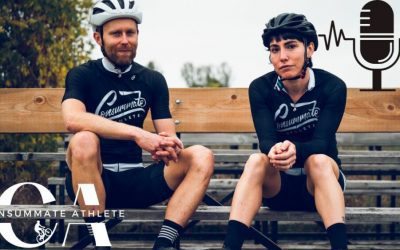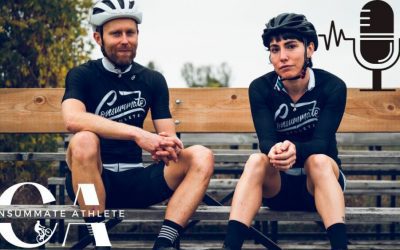Adam Mcclellan talks to us about parkour. How to go to you first class, what parkour is, why it is a great sport/activity to pursue. What to expect at your first class and many more things you can use to prepare for parkour and also transfer to other sports.
Adam McClellan of Parkcour Generations talks about what Parkour is and how it can benefit your other sports as well as have a tremendous effect on your mind and body. We get into the rigorous coaching certification that Parkour has and also what a first class might look like when you try it. As usually we find out tips on how to fit in your first time trying the sport and a few ‘tricks’ to practice before you go.
Bio/how did you find Parkour?
Quick explanation of what Parkour is?
-David Bell talks about efficiency in time, energy and sound. Many ways to define
– mind body are strength challenged and strengthened to overcome obstacles -> Overcome with movement
How can pretty much any athlete benefit from some Parkour skill?
– All sports have a mental/physical aspect. Think about how a trail runner might benefit from the precision and confidence in technical areas. Same for mountain biker.
– The physical aspects of jumping, running, strength training and mobility transfer to other sports and, at worst, balance the overuse of many sports.
What would you consider the three key moves in Parkour?
-> many movements as always adapting to environment
-> Run, jump, swim , climb etc.
What equipment MUST I have? (specific clothing/what’s the best practice place?)
– many athletes will wear ‘hammer pants’ and a tank top
– there are a range of shoes used ranging from barefoot to trainers, likely wise to be in the middle to start.
– first timers = aim for comfortable fitness clothing
WHERE
-> often will be at school playground after hours or some indoor gyms can be found
-> always leave area cleaner then you left it .
How do I find people to train with?
Google ‘parkour’ and your area to find meetup groups or classes
–
Travel to best place to do it or immerse yourself in the sport?
Colorado, Pennsylvania, D.C., London
coach vs watching youtube videos?
– Careful with videos as generally will see most extreme, back-flips off roofs etc. and miss the years of progression and very approachable first sessions
– good coaching in ‘certified’ parkour sessions given the rigorous certification program
– a coach will help make sure you avoid overuse, do appropriate strength/mobility and help you set goals for your age/ability
What would a normal “training” week look like / is it competitive?
Best advice to someone just starting out? First class ?
This is basic coaching / training philosophy to remember with Parcour
1) safety – inspect area
2) Progression – start with foundations and progress to ensure proper form
3) Repetition – practice makes permanent
4) precision – ensure can do often
5) Control – under pressure, extremes et.c
exercises/training drills?
– lots on web and many qualified communities to help get started. Google “Parcour Warmup and techniques”
– Routine is typically Warm Up + Conditioning = watch bad habits
– Adam’s favorite move – Quadrupedal movement -> Uses lots of muscles and is low impact (Crab walk , bear crawl etc. )
What’s the one cool move I can do to make it look like I know what I’m doing?
-> Lazy sit – stand beside handrail, put both hands on and swing legs over then back on otherside completing a 180.
Best way to avoid getting injured?
– Parkour has a relatively low injury rate
– ensure obeying progression and precision
– ensure balanced training week with mobility, endurance and more skill oriented days
Any weird/surprising etiquette?
– Handshake by grabbing wrist
Follow up from above comment on mind = How is Parcour more challenging to the mind then other sports ?
– Stanford Marshmallow study on delayed gratification
– Essentially parkour trains for long term commitment to progressing and practice and body awareness .
– It is portable and adaptable to wherever you are .




